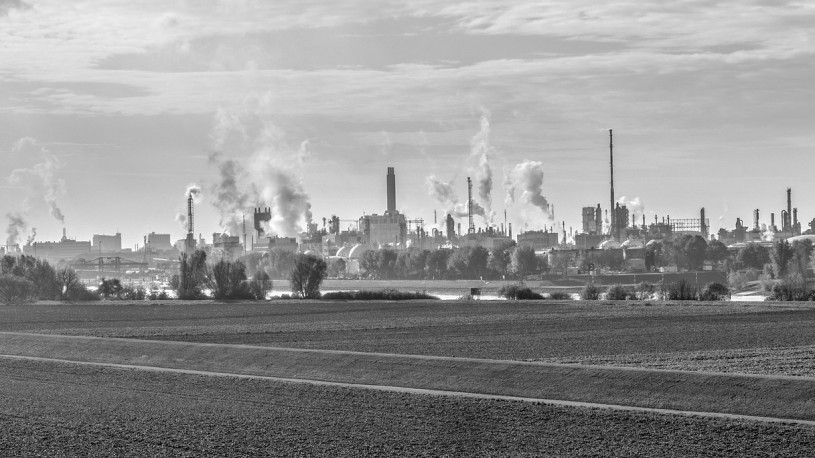-
Do Chemical Trading Companies Pay Too Much Tax?
 Continue Reading
Continue ReadingAs any chemical trader will tell you, it is often the logistics in a deal that can makes the difference between profit and loss. The transportation costs, the insurance, the handling fees, paperwork and taxes all take a toll (pun intended) on a chemical business’s bottom line.
This is one of the many reasons why chemical processing plants are so frequently located near their primary markets. But when this is not possible, chemical products must be imported or exported, and it is at this point that bureaucracy takes its biggest bite. But it is a bite that varies greatly from place to place.
A World Bank study showed that the ‘fees’ for importing a 20 foot container into Tajikstan were US$10,650 but only US$675 in Sri Lanka. And yet costs also change over time, the Tajikstan container fees were ‘only’ US$4,550 in 2011, so have more than doubled in 5 years. How many chemical import/export companies went out of business as a result of the increase is unknown, but given the vital nature of the chemical industry’s work, shouldn’t chemical import/exporters be given tax breaks?
Whilst this may sound wonderful for those of us inside the industry, given the reputation that industrial chemicals have it will be a less appealing option for the majority of the population. It would be career death for any politician proposing it.
This is especially true as public perception of a chemical company is of a massive multinational, such as BASF or Bayer, despite the fact that most chemical businesses are relatively small. The American government trade body SelectUSA reports that in 2012 in the US there were 10,000 chemical companies which directly employed 784,000 workers (an average of only 7.8 workers per company).
But still, it is firms like ExxonMobil that enter the public concept of a chemical company when they read of the firms alleged attempts to hide knowledge of climate change. Whilst tax headlines for chemical companies includes Dow’s 2013 claim for US$1 billion worth of tax deductions which were declared a ‘sham’ by the New York Attorney General, as reported by Reuters and others.
But perhaps there is some bright news for chemical traders, from the growing number of bonded and tax free logistics centres starting up around the world, such as those that recently opened for pharmaceutical supply imports to Indonesia.
The news, which was reported in Manufacturing Chemist, describes the obvious benefits, “The move constitutes long-awaited support for local industries, including pharmaceuticals, which still imports up to 90% of the ingredients needed for the production of medicines. By storing goods in PLBs [bonded logistics centes], overseas suppliers can drastically cut the delivery time to the local buyers.”
This is of course, not only good news for not only to traders, but to suppliers and purchasers, as well as the Indonesian public, who can expect to pay less for their medicine. But better news still, is that, “The government plans to establish a further 50 bonded logistics centres across the archipelago in 2017.”
Many will argue that duty free centres like this mean that the government has less income for its vital services, such as schools and hospitals, but import and export duties on vital chemical products, that are supplied to 99.9% of the global population, are a tax on us all. In a world where free trade and open markets are increasingly a geopolitical goal, doesn’t an industry that gives vital employment to so many deserve a better tax break?
-
Specialty Chemicals Winner; China or India?
 Continue Reading
Continue ReadingLike other sectors in the chemical industry, the specialty chemicals sector is predicted to see good growth over the coming decade. The Economic Times of India reports that, “The global specialty chemicals market is likely to expand by 5.2% on a compounded basis from 2013-2018, and is estimated to jump to $761 billion by 2018 from $619 billion in 2014.”
Most of this growth will happen in Asia, the reasons for which were highlighted in a recent report by industry consultants McKinsey, when they wrote, “The appetite [for specialty chemicals] is being driven by rising standards of living and increasing demand for consumer products from household goods to cars, all of which require specialty chemicals in their production. At the same time, the upward trend in the sophistication of manufacturing in emerging economies—for example, from textiles to electronics—should increase demand for more advanced chemicals.”
An IHS report from late 2015 concurred, saying that, “During 2014-19, volume consumption of specialty chemicals is expected to increase at close to 4% on a global basis.” The report continues by stating that, “Chinese and Indian manufacturers have become key players in several specialty chemical markets.”
But in the high stakes battle for dominance in the specialty chemicals market, who will be the top dog of the future, China or India? An examination of the problems and advantages that each country has may help answer these questions.
China’s Specialty Chemicals Industry Problems
The Chinese economy is facing major challenges with growth for the first time in decades, a problem that is certain to have an impact on the specialty chemicals industry. As the BBC reported in March 2016, “A slew of weak economic data has recently added to the concerns [over Chinese economic growth] and US ratings agency Moody’s has downgraded its outlook for China from ‘stable’ to ‘negative’.”
Meanwhile, the fact that the Chinese PM is warning that, “China will face more and tougher problems and challenges in its development this year, so we must be fully prepared to fight a difficult battle,” is bound to have industry chiefs worried.
Overcapacity is one challenge that has been outlined in a recent McKinsey report on Chinese specialty chemicals, when it stated that, “The fast demand growth of the past decade has encouraged a wave of ‘me too’ investments that, with the slowdown, have led to overcapacity … even in some specialties sectors such as vitamins, depressing profitability.”
The Wall Street Journal also highlighted the problem of overcapacity reporting that, “China’s ambitions in global chemicals, coupled with its slowing domestic economy, have contributed to sharp overcapacity in parts of the industry, which analysts say is weighing on the margins of major companies and could contribute to consolidation in the sector.”
Whilst the Chinese specialty chemicals industry is still dominant, there is concern that the challenges it is facing will lead to it being overtaken by India as the sector’s major growth area. But then India has its problems too…
India’s Specialty Chemicals Industry Problems
Shri Ananth Kumar, Cabinet Minister for Chemicals and Fertilizers in the Indian Government outlined the industry major deficits when talking to promoters of the upcoming conference ‘IndiaChem 2016’. He believes that, “The 3 major issues that India Chem faces in the Chemical and Petrochemical industry are feedstock, infrastructure and tariff concession.” But he remains upbeat, stating that, “If these are provided by the government of India, then no one can stop us. We can be global leaders in the Chemical and Petrochemical industry.”
Clearly there is optimism in India that they can challenge China’s dominance in the market, but only time will tell if this optimism is misplaced. As Shine Jacob reported in the online journal LiveMint, attempts by the Indian government to prevent the countries dependency on basic pharmaceutical imports from China did not succeed. He wrote that, “Early in the year, the government declared 2015 as the year of bulk drugs or Active Pharmaceutical Ingredients (API) in a bid to promote its ‘Make in India’ initiative. The year is nearly over but self-sufficiency in bulk drugs remains a distant dream as India remains import dependent with over dependence on China even for essential drugs.”
Possibly India has too much ground to cover to catch up with the ever expanding Chinese. Perhaps the question should be whether China’s chemicals industry will ever slow down long enough for India to be able to close the gap.
China’s Specialty Chemicals Competitive Edge
Certainly China is in a strong position. According to a recent IHS report, “China will have the highest growth rate of all regions during the next five years. China is seeing some short-term setbacks in its economy and the forecast of consumption for specialty chemicals has been downgraded slightly, from the historical range of 8-9% to 7% per year. Nevertheless, it will continue to power the growth of global specialty chemicals during the next five years.”
And whilst overcapacity is a problem, many believe that the country will soon recover from this problem as domestic demand recovers. For example, Jean-François Tremblay, reporter at Chemical and Engineering News, writes that, “For years now, Chinese chemical producers have struggled with overcapacity. But the outlook is improving, especially for specialties. In particular, the construction sector, where China’s slowdown had been particularly sharp, is showing signs of life.”
India’s Specialty Chemicals Competitive Edge
Like China, India is in a strong position, but as C&EN reports, it is getting even stronger. “India, Asia’s third-largest economy, is roaring, and its economic growth is expected to pass that of China in 2016. The country’s biggest chemical producer, Reliance Industries, [recently] achieved its most profitable six months.”
And predictions are for even stronger specialty chemicals growth as the Indian economy matures and overall growth booms. As Sanjeev Gandhi, BASF’s top manager for the region, explained to C&EN, “2016 will be an even better year than 2015 for India’s economy. One reason is that the sales tax system will be reformed to lower and simplify the cost of transactions. In addition, the monsoon in 2016 will likely be better than last year’s because India rarely experiences two bad monsoons in a row. The rains matter to the economy in a country where two-thirds of the population is rural and dependent on agriculture.”
Gandhi is not alone in his belief for exceptional opportunities in India. Manish Bhandari, CEO at Vallum Capital, recently told the Economic Times of India that, “Specialty chemical companies will prosper in India because of its chemistry, R&D skillset and economies of scales achieved by the country. This is supported by a paradigm shift in Chinese markets towards urgency of reducing pollution and investing in labour cost across industries. We [Indians] have established an ecosystem of basic chemicals; a key input for the specialty and pharmaceutical industries.”
Ritesh Gupta, industry analyst at Ambit Capital, also believes that specialty chemical companies are under pressure in China, leaving foreign investors to look to India for faster growth. He said that, “Facing compliance, cost, and capacity issues, global chemical innovators are looking to outsource their manufacturing processes to India. This creates an opportunity for Indian firms over the next 5-10 years.”
But perhaps India’s greatest advantage is its market potential, which unlike China has really yet to be tapped. A point made by Dhiraj Sachdev, vicepresident, HSBC Asset Management, when he noted that, “Business is shifting to India from China. This is mainly on account of stringent effluent norms and increasing wage costs in China. India is only one -eighth, or one-tenth, the size of the Chinese specialty chemicals market, which throws up a huge opportunity for Indian companies with the potential to scale up and grow on a sustained basis.”
So Who Wins?
The most likely outcome is that both countries will see good growth in the specialty chemicals sector in the coming decades. Both have upbeat forecasts and massive market potential. Both face growing feedstock challenges, yet both have huge investment in place for infrastructure and research.
It seems that the battle will continue, with an as yet to be determined outcome. Except perhaps for one certainty; whereas in the past the comparisons always focused on East versus West, the talk of tomorrow’s specialty chemicals industry may well focus on India versus China.
-
Is it Fair if a Tax Law targets the Chemical Industry?
 Continue Reading
Continue ReadingThe Louisiana Chemical Association is not happy with their taxes. They are not alone. For only in Monte Carlo and Gran Cayman are people really happy with their tax bills.
But the problem in Louisiana is that chemical traders, manufacturers and processing plant owners across the state believe that recent changes to the tax laws specifically (and possibly unfairly) target the local chemicals industry.
Trouble began earlier in the year, when Louisiana legislators passed new laws that they hoped would fill an impending $103 million hole in state finances. The laws removed many of the tax breaks and deductions that local business could apply to offset against their earnings. With a number of large chemical producers and traders in the state, these laws were in the minds of many introduced to get those companies to pay more tax.
Naturally, those chemical companies weren’t happy about the changes, so they took the new laws to a judge, claiming they weren’t legal. As the Washington Times reported in Dec 2015, “The Louisiana Chemical Association (LCA) argued that the temporary suspension of a 1-cent sales tax exemption on business utilities didn’t receive the required votes for passage in the state House of Representatives and was unconstitutional.”
Unfortunately for the LCA, the judge disagreed, stating, “I think the procedure for adoption for this concurrent resolution was in accordance with the constitution.”
The LCA duly appealed, believing that the State had not reached the required number of votes in both houses of government to change the tax laws.
While the legal fight continues, “Several chemical companies have paid the taxes under protest, so the money can’t be spent while the lawsuit is pending,” according to the Washington Times report of Feb 2016.
Like all matters of tax and the law, the battle looks to be long and expensive, with both sides locking horns for their own self interests.
Previous tax laws have been implemented around the world that target specific industries, such as the UK’s recent introduction of a tax on soft drinks with a high sugar content. But tax laws like these are introduced as a health issue or other public benefit. For example, the tax will not only reduce national sugar consumption but, the money raised from the tax will also be spent on improving public health. As the BBC reports here, “Mr Osborne [the Finance Minister] said the money raised – an estimated £520m a year – will be spent on increasing the funding for sport in primary schools.”
While much of the LCA’s case focuses on the technicality of the law’s implementation, it has left industry heads and academics wondering if it fair or reasonable for a tax law to be changed to target a single business sector. Taxes on alcohol, cigarettes and petrol are all public health issues. But whilst the chemicals industry gets much bad press for ‘poisoning the planet’ or ‘creating toxic waste’, the fact remains that responsible chemical businesses provide the products that are vital for modern life. Without the chemicals industry, our world would step back 100 years. So why target the sector with tax laws?
Meanwhile, the LCA’s lawsuit looks set to continue. To find out the result, just watch this space.
